Refugees from Ukraine start from scratch on the Moldovan job market
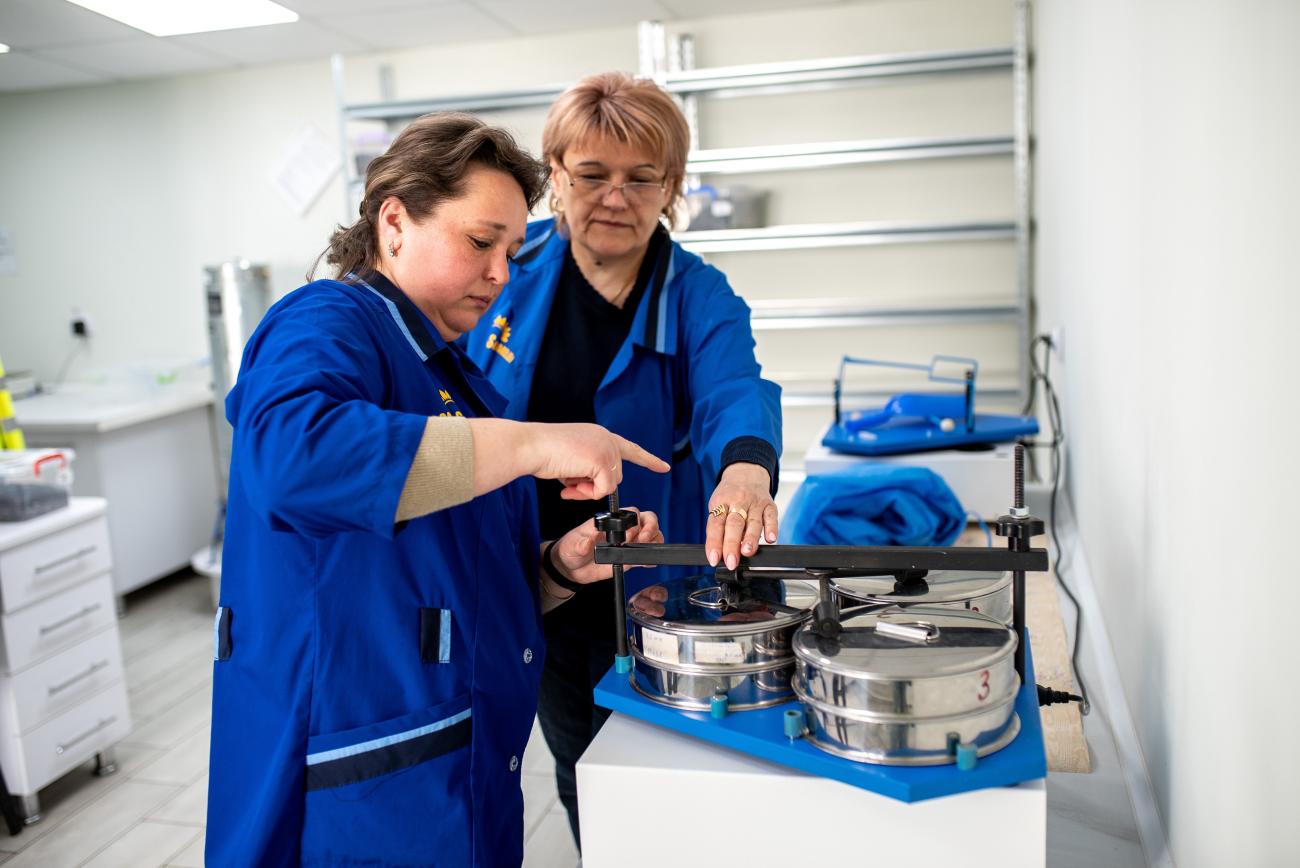
Tatyana was welcomed in Balti, Moldova’s northern capital, by her relatives.
“When the war started, I panicked like everyone else. I wanted to stay in Odessa, but my husband insisted that I leave for Moldova. So I came to Balti with our 11-year-old son,” says Tatyana, a refugee from Ukraine. Her mother, husband and 20-year-old daughter, had to remain. “My daughter is a nurse, and she stayed to provide lifesaving help during the war. I can’t believe that at this young age she goes through such a disturbing experience.”
“During those first days in Moldova, in mid-March, I used to stare at my phone for hours, scrolling through the feed of appalling war news. It was then when I understood that I had to find a job and reduce the level of stress,” says Tatyana.
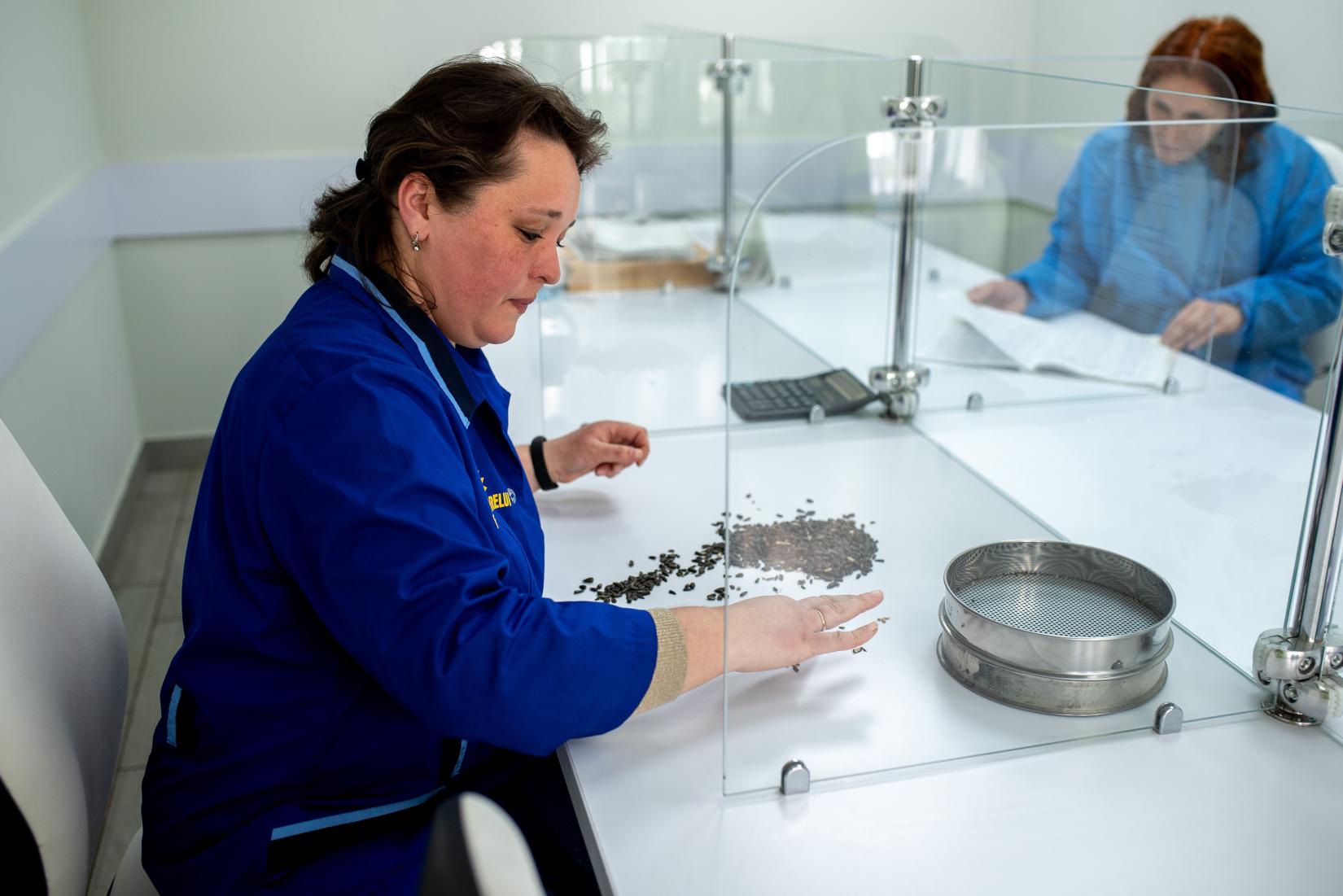
On the advice of her hosts, Tatyana sought the services of the subdivision of the National Employment Agency (NEA), where she was offered several job vacancies. Although she is an accountant, she chose to work as a laboratory technician for the Transoil group of companies/J.S.C. Floarea Soarelui (Sun’s Flower), a sunflower oil production plant.
Strategic partners UNDP and Switzerland support the NEA deliver job search services which include information, counselling, referral, and mediation services on the labour market. That support is also helping to raise awareness of the NEA’s services and of job opportunities among the refugee community. Beginning in May, the Agency also began offering short-term professional training courses to refugees located in Chisinau and Balti.
Like Tatyana, more and more Ukrainian refugees have decided to find decent jobs to both earn a living and to distract them from their concerns about the war and their families. As of mid-May, almost 400 refugees have found jobs in the Moldovan labour market.
Most refugees seek jobs in sectors similar to their work at home Ukraine. But, when their plans are turned upside down, they do not hesitate to learn new skills and gain professional experience. This is the case of Tatyana. Within two weeks of submitting her application she was hired by Floarea Soarelui.
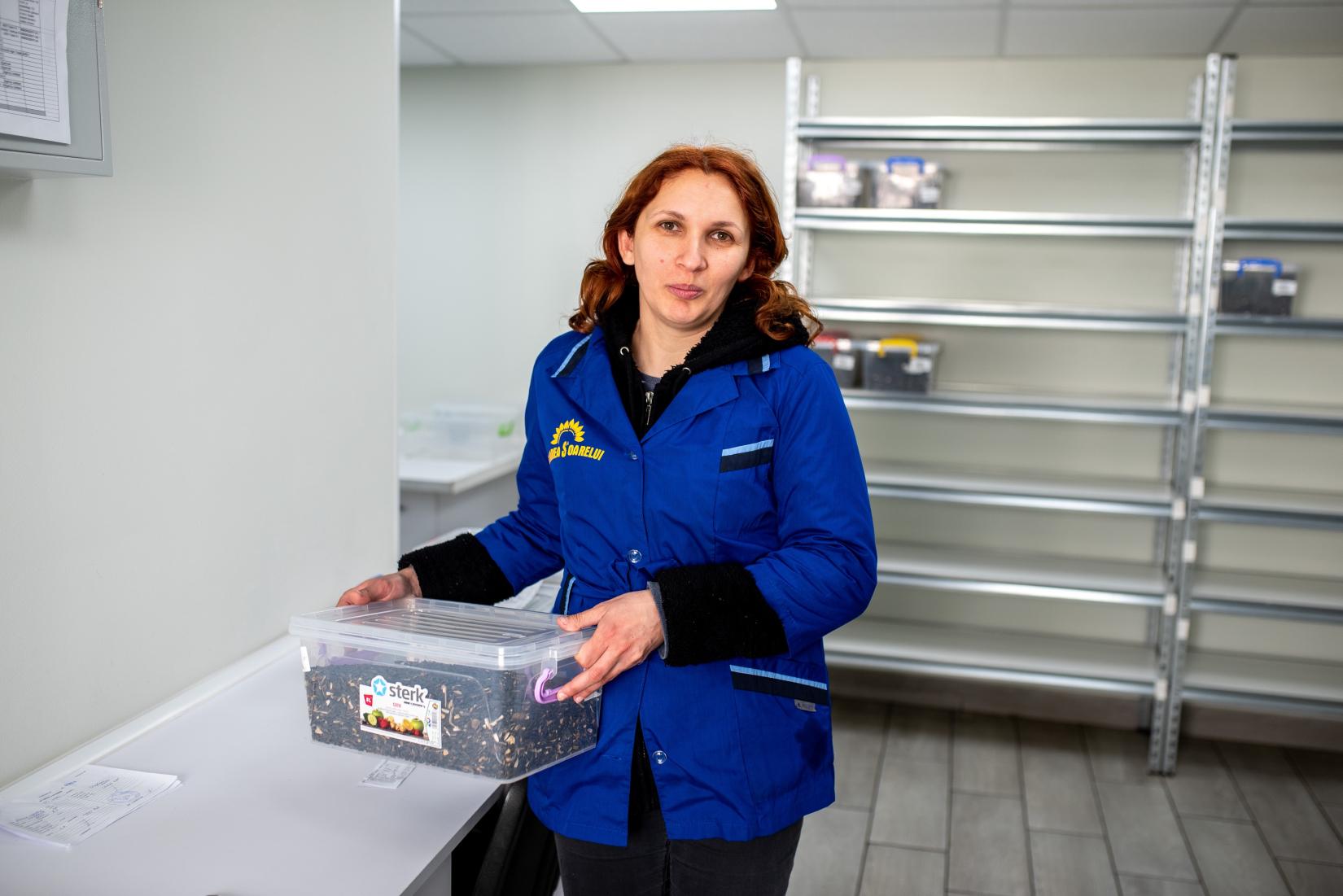
“I wanted to start working as soon as possible. All I needed was to do something useful while spending my time here,” notes Tatyana.
At the factory, Tatyana made friends with Anna, a refugee fellow from Mykolaiv.
“It was a discovery to learn and see how many tests are carried out before oil arrives on our tables. Now we appreciate it even more”, note both women say. They feel now familiar with the equipment and processes.
“It is a real challenge for me, as before I worked as a sales consultant in a clothes shop in my hometown. I am very thankful to have a chance to learn something new, to earn money and work in a pleasant environment with warm people,” says Anna.
Tatiana and Anna work at the plant alongside other 600 employees.
“I did not hesitate for a second to offer this job to a refugee”
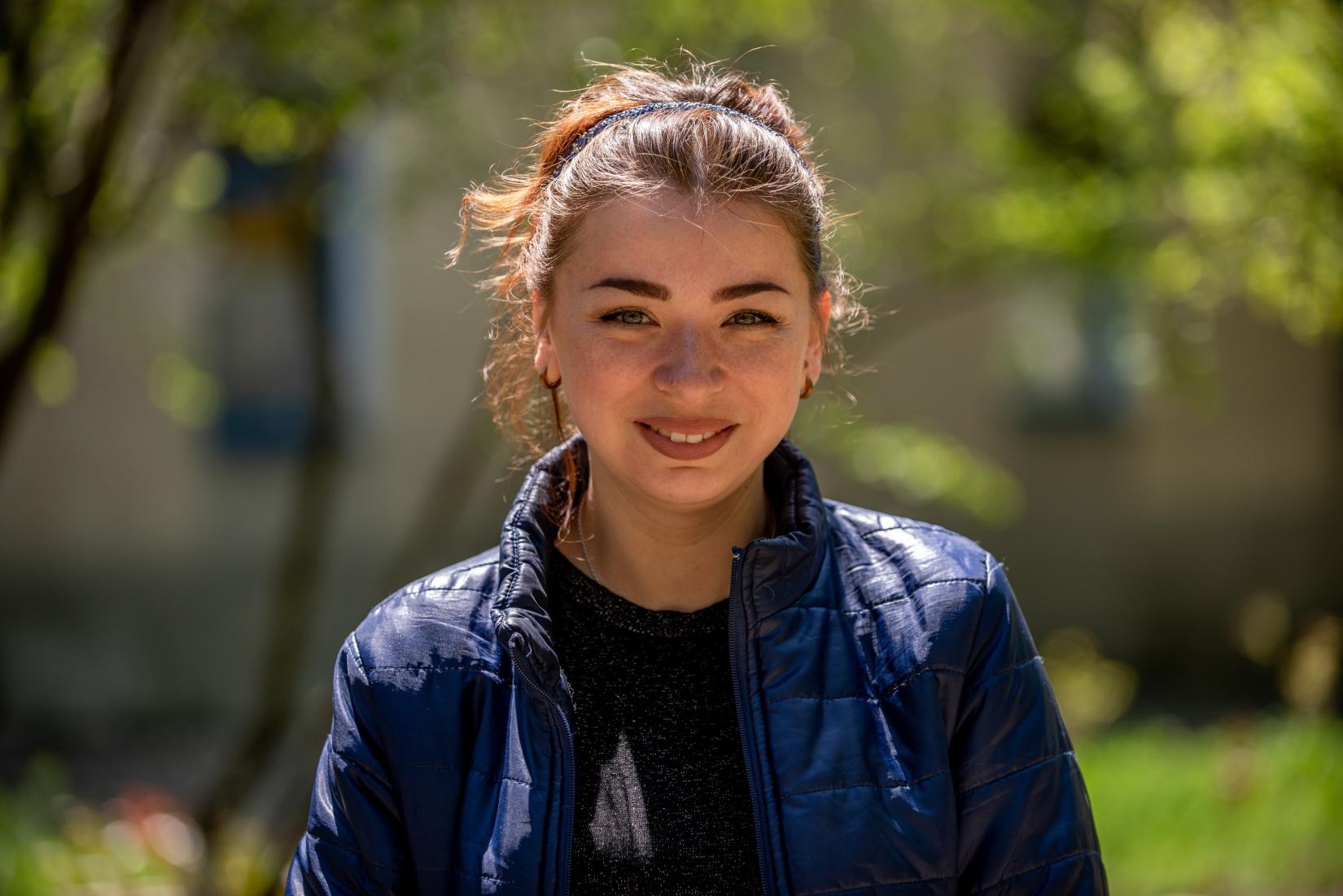
Yulia Bespalova from Kharkiv took temporary refuge in Balti, together with her 8-year son. An experienced Montessori educator, she quickly found a job as a speech therapist at a municipal kindergarten.
“I was extremely impressed how quickly the National Employment Agency handled the paperwork and found a suitable job for me,” tells Yulia.
While speaking, Yuliia supervises the playing children; some of them were constantly bringing her flowers or rocks, sharing their joys, and sorrows.
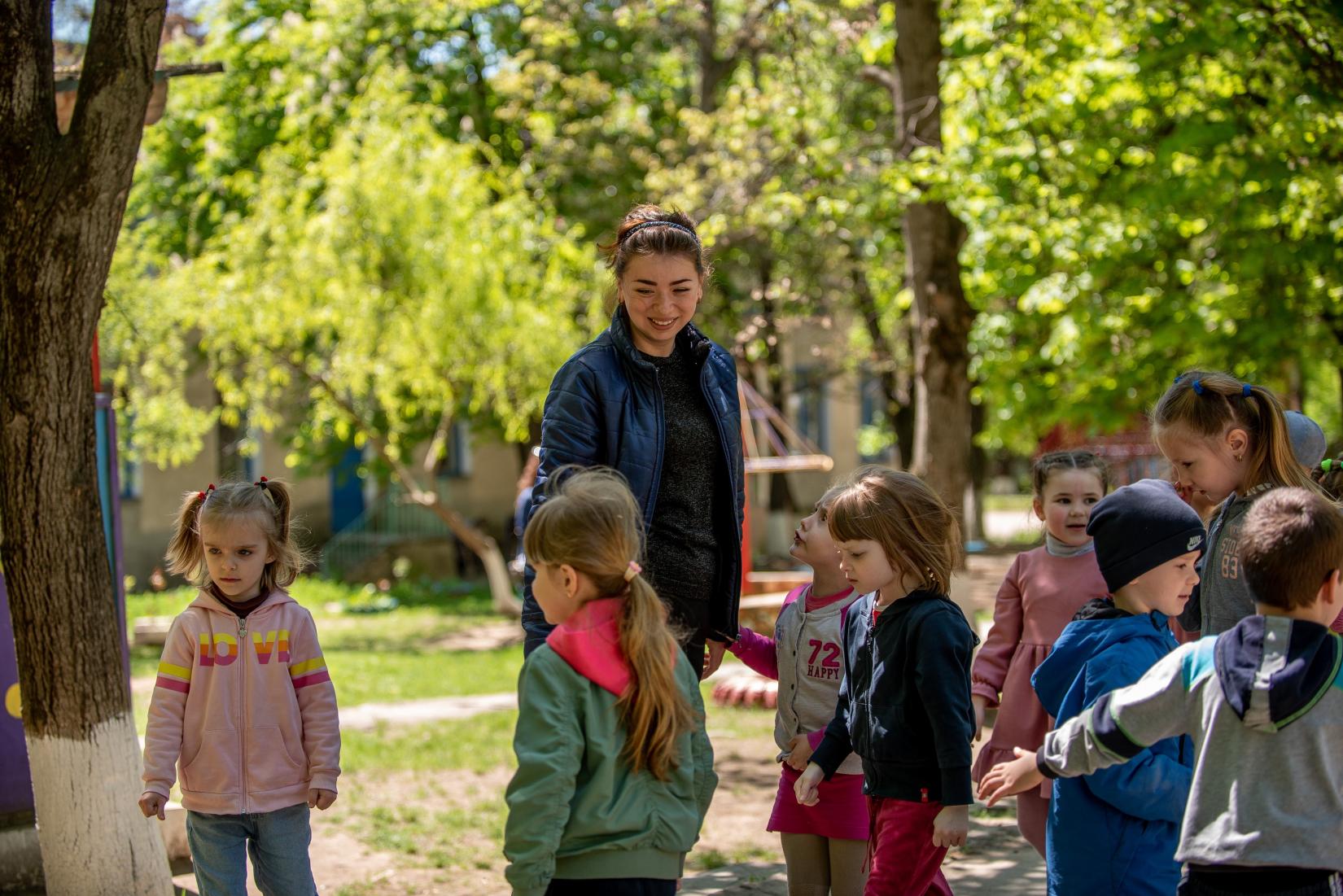
“My job is the best therapy… Especially now, I feel extremely lucky and spoiled by their energy and kindness, also by the warmth of the team that supports me unconditionally. I will miss each of them when I return home.”
“I was impressed by the fact that Yulia was a Montessori-trained educator and did not hesitate for a second to offer her this job. It is something new for me and a great opportunity to share my experience with her, to understand how this method works and where we can join forces to offer the kids both a fine experience and a proper education,” says Svetlana Tugarova, director of the kindergarten.
Since the onset of the war, 133 employers across Moldova have hired more than 2,100 job to Ukrainian refugees in: IT, construction, engineering, tailoring, trading, healthcare and more.




